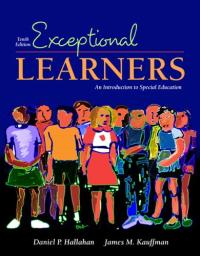
Encyclopedia of Special Education
- The only encyclopedia or comprehensive reference devoted to special education
- Editors-In-Chief and Contributing Editors are leading researchers and scholars in the field
- New edition includes over 200 more entries than previous edition, with increased attention given to those topics that have grown in importance since the publication of the third edition, such as technology, service delivery policies, international issues, neuropsychology, and Response to Intervention, Positive Behavioral Interventions and Supports (PBIS), Autism and Applied Behavior Analysis. In addition, the entries will be updated to cover the latest editions of the assessment instruments frequently administered in special education settings
- Includes an international list of authors and descriptions of special education in 35 countries
- Includes technology and legal updates to reflect a rapidly changing environment
4 Volumes
http: //onlinelibrary.wiley.com/book/10.1002/9781118660584
*This is a 4 volume set. Books can be purchased individually or as a set.




